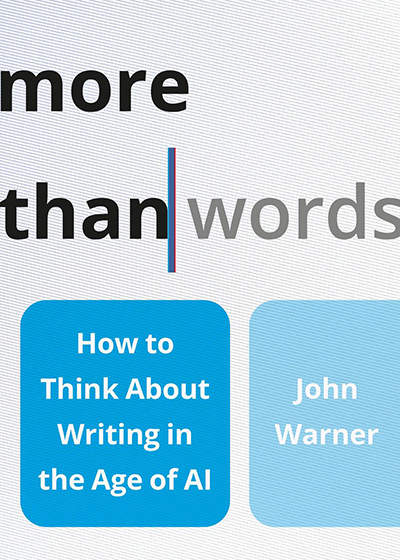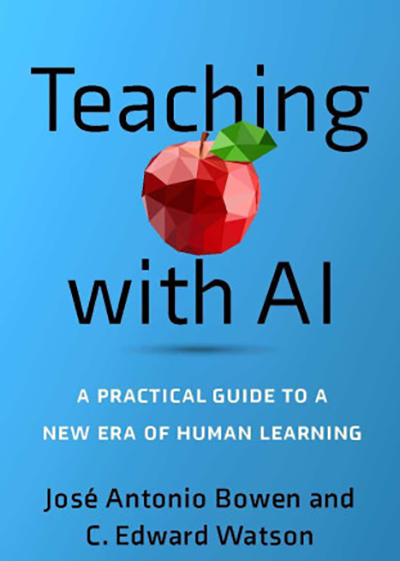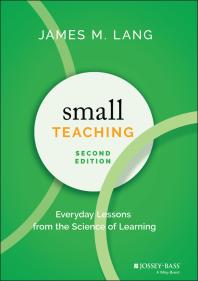How Learning and Forgetting Intertwine
Of all the weather-related disruptions we’ve had the last few years, last week’s winter storm in Florida might be the most surprising. After an unexpected week off, many of us returned to work on Monday feeling a bit foggy about what we were doing when we left. When we returned to our offices, labs, and classrooms, though, and looked at our projects, we were likely able to remember more of the details and get back on track. If you experienced this, it may be because it’s easier to recall information when the context provides cues.
Our students, too, may have forgotten the foundations we’d helped them build in the first two weeks of the term, so many of us probably started this week with a recap to jog their memories. Prompting students to recall what they’ve learned in past class sessions is useful whether we’ve had an unexpected break or not because it’s a form of retrieval practice.
Although forgetting may be frustrating for both faculty and students, there are several things to know about it that can help us with our teaching:
1. Forgetting is normal. We know from experience that our brains are not like cameras permanently recording everything we observe. Our memories need to be more efficient than that, so it’s normal to forget quite a lot of what happens around us. If we think of forgetting as a form of filtering out what we don’t need to remember, we can see how attention works similarly. As Fawcett and Hulbert explain, “Information loss begins at the moment of experience, with attention favoring certain details over others.” Even when we do pay attention to something, forgetting it can happen in as little as one hour. When teaching, it’s helpful to remember that forgetting is normal, even useful, and happens to everyone. If our students forget some of the instructions we said aloud in class, we probably shouldn’t take it personally.
2. Forgetting is part of learning. Some students might think that the right time to forget material they’ve learned is right after they’ve taken the exam. They might also believe that cramming—or massed practice—is the most effective way to study. If students want to really retain information, though, to be able to use it later in the course, in downstream courses, in a career, or in life, they might appreciate knowing that spreading their study sessions out over time is much more effective than cramming. This learning method is called spaced practice. The opportunity to do some forgetting between study sessions, which makes retrieving information from memory a bit more challenging, actually has many benefits. In addition to retaining the information longer, and being better able to retrieve it when needed, students who engage in spaced practice may develop a deeper understanding of what they’re learning, generalize more, make more connections, and be able to apply what they’ve learned more flexibly. Spaced practice has so many benefits, we could consider designing our courses so that all students need to do it. That way they will all benefit rather than just the ones who happen to use this method outside of class.
3. Context affects forgetting and remembering. If a student employs spaced practice, say by quizzing herself for 15 minutes a day every other day for two weeks, that is already great. She’ll be using a more effective method than many do, and she’ll experience many benefits. And if she does that self-quizzing in the same context, such as the same spot in the library, each week, she may find it easier to retrieve the information from her memory. But easier isn’t necessarily better for long-term results. In fact, if she changes up her environment—say the library, the student union, her dorm room, and Landis Green—retrieving the information will likely be more effortful, but she will be better able to do so in novel contexts in the future. This is because cues from our environment help us remember. As Bjork and Bjork explain, “Restudying the material in a different location, where more of it will have been forgotten at the time of this restudy, rather than the original location, where more of it will still be accessible at the time of this restudy, actually enhances later recall of that material.” Our students will be better equipped to apply what they’ve learned in new situations if they practice retrieval in more than one context.
No doubt we have more to learn about how research on memory and forgetting can enhance our teaching. Such findings may also remind us that we have more to learn about our own minds—like this interesting food for thought from Karpicke and Coverdale:
What a person remembers or forgets is always a function of the retrieval cues available in the environment. It is difficult or perhaps impossible to know whether items are ever forgotten absolutely, because memory is always examined with particular retrieval cues in a given retrieval context. An item that appears completely forgotten under one set of retrieval conditions may be perfectly memorable under another.
We hope you’ll remember to reach out to us when you’d like to discuss teaching and learning! You can contact us for a consultation by emailing pro-teaching@fsu.edu. We look forward to working with you!
UPCOMING EVENTS
Provost’s Showcase of Scholarly Teaching
(Application due date extended)
Friday, April 4th | 1:00 – 5:00 p.m. | TBD | More details on our website
We’re delighted to announce that CAT and FSU Libraries will host the second annual Provost’s Showcase of Scholarly Teaching on April 4th, 2025. This event is an opportunity for you to share your teaching expertise and innovations with the larger campus community. Even if you’ve never thought about presenting at a pedagogical conference before, you likely have strategies and insights that could be of benefit to colleagues. We invite you to apply to host a roundtable discussion or present a poster.
If you would like to submit a proposal, please fill out our Application Form. The application due date is February 7, 2025. We look forward to working with you!
SPRING FACULTY READING GROUPS
This semester the Center for the Advancement of Teaching is offering the following faculty reading groups. Each group will meet once a week for three weeks to discuss the books in sections. We hope you can join us! Please register here.
Tuesdays: 2/4, 2/11, 2/18
1:00–2:30 p.m.
Location: TBD
Print copy, delivered through interoffice mail
Tuesdays: 2/13, 2/20, 2/27
1:00–2:30 p.m.
432 Diffenbaugh
Print copy, delivered through interoffice mail
How do I get my students’ attention? How do I help them to go deeper, to make connections, and to feel empowered by their own learning? James Lang’s book, now in its second edition, explores the science of learning and shares with us small changes we can make that will have a powerful influence on our students’ learning. Join us as we discuss a variety of practical tools and techniques that can help us answer these and other teaching questions.E-book available for free through FSU’s libraries.
Wednesdays: 2/19, 2/26, 3/5
1:30–3:00 p.m.
Dirac Library Conference Room
Print copy, delivered through interoffice mail
There has been a revolution in teaching and learning over the past generation, and we now have a whole new understanding of how the brain works and how students learn. In The Missing Course, David Gooblar offers a practical guide to teaching and learning packed with research-based insights to help students learn in any discipline. From active-learning strategies to course design to getting students talking, in this group, participants will find ideas and tips they can use in their classrooms right away.E-book available for free through FSU’s libraries.

Fridays: 2/21, 2/28, 3/7
2:00–3:30 p.m.
432 Diffenbaugh
Print copy, delivered through interoffice mail






